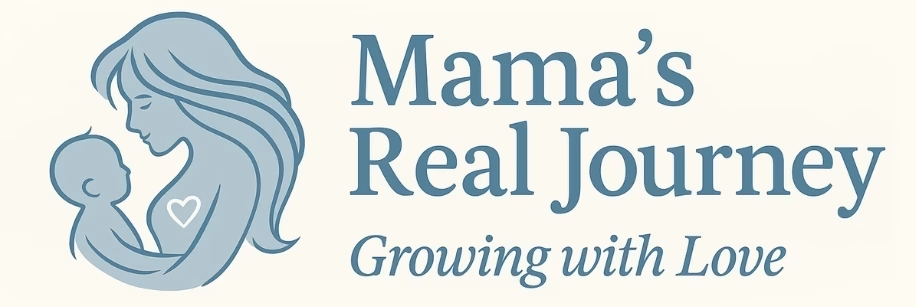The first trimester of pregnancy can feel like an emotional whirlwind. Whether this is your first baby or your fourth, these early weeks are filled with new feelings — excitement, worry, hope, and a lot of change.
From the moment you see those two pink lines or get the call from your doctor, life starts to shift. But how do you take care of yourself when everything feels unfamiliar?
As pregnancy unfolds, many parents also start thinking about one of the most meaningful decisions ahead — choosing a name for their baby. If you find yourself dreaming, wondering, or even making little lists already, I’ve shared a full guide with thoughtful and meaningful baby name ideas here:
👉 Baby Name Ideas for Boys and Girls: Modern, Classic & Meaningful Choices
Let’s walk through what to expect, what’s happening in your body, and how to stay grounded in these early weeks.
👶 What’s Happening Inside Your Body
During the first trimester, your body is working hard — even if you don’t feel pregnant yet.
Your baby is:
- Just a poppy seed at Week 4.
- Developing a brain, heart, and spinal cord by Week 6.
- Growing fingers and toes by Week 10.
- Forming all vital organs by the end of Week 12.
By the time the first trimester ends, your baby will be about 2.5 inches long and fully formed — tiny, but miraculous.
🤰 How You Might Feel
Let’s be honest: the first trimester isn’t always easy. Many women experience a variety of symptoms, including:
- Fatigue – You might feel utterly exhausted, even after a full night’s sleep.
- Nausea (with or without vomiting) – Often called “morning sickness,” but it can happen any time of day.
- Food aversions or cravings – The smell of coffee might suddenly make you queasy, or you may desperately want pickles at midnight.
- Breast tenderness
- Mood swings
- Frequent urination
And for some, there are no symptoms at all — and that’s okay too.
Remember, every pregnancy is unique. Listen to your body and rest when you can.
🥗 What to Eat (and Avoid)
Nutrition plays a big role in supporting your baby’s early development. Focus on foods rich in:
- Folic acid – Crucial for neural tube development (think leafy greens, beans, and fortified cereals).
- Iron – Your body needs more to support increased blood volume.
- Protein – Helps build your baby’s tissues and muscles.
- Calcium – Important for bone development.
Avoid:
- Raw or undercooked meat and eggs
- Unpasteurized dairy
- High-mercury fish (like swordfish and king mackerel)
- Too much caffeine (limit to ~200mg/day)
And don’t forget to drink water — hydration helps with energy, digestion, and preventing headaches.
🩺 Your First Prenatal Appointment
Most women have their first prenatal visit between weeks 8–10. Here’s what to expect:
- Ultrasound to confirm the pregnancy and due date
- Blood tests to check for anemia, blood type, and immunity to infections
- Urine test for protein and sugar levels
- Discussion of medical history, lifestyle habits, and any concerns
This is a great time to ask your provider anything — no question is too small.
🧘♀️ Self-Care for the First Trimester
It’s easy to get caught up in Google searches and baby apps. But this is also a time to slow down and take care of yourself.
Here are a few small practices that can make a big difference:
- Guided meditation: Try a 10-minute calming session when you’re feeling anxious.
- Deep breathing: Especially helpful when nausea hits or emotions feel heavy.
- Movement: A gentle walk or prenatal yoga can improve circulation and mood.
- Sleep: Nap when you can. Your body is doing a full-time job, even when you’re resting.
💬 Emotional Health: You’re Not Alone
Pregnancy brings big feelings. One minute you might feel overjoyed, the next overwhelmed.
It’s okay to cry. It’s okay to worry. It’s okay to feel unsure.
Reach out to a trusted friend, partner, or mental health professional if you’re struggling. Many women experience anxiety or depression during early pregnancy — it doesn’t mean you’re doing anything wrong. It means you’re human.
🏡 Start Preparing Gently
You don’t need to buy a crib just yet. But this trimester is a good time to:
- Start a pregnancy journal or app to track milestones
- Read up on first trimester symptoms and tips
- Begin thinking about your birth preferences
- Research prenatal vitamins, if you haven’t already
Small steps now can make things easier later.
💛 Final Thoughts
The first trimester of pregnancy is full of change — physically, emotionally, spiritually. You may not see your bump yet, but the journey has already begun.
Give yourself grace. Say no when you need to. Rest more. Trust that your body knows what it’s doing.
You are already a mother — and you’re doing beautifully.




